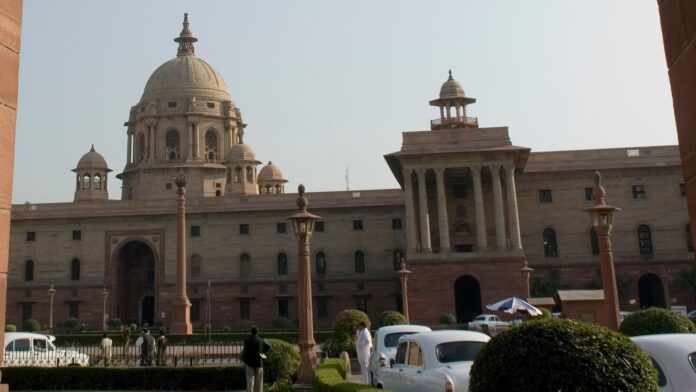Fixing this problem does not appear to be a priority for the government led by Prime Minister Narendra Modi, as we saw yet again last week. If that doesn’t change, all plans to transform governance may come to naught.
The Indian Administrative Service (IAS), the elite bureaucrats who are constitutionally required to make every decision of consequence in the country, number only about 5,000 officers. Those senior enough to hold posts in the central government in New Delhi are about a 10th of that number.
This glorious 500 are generalists, rather than specialists. They are selected young, through a fiendishly difficult examination, and many seem to stop learning anything new the moment they pass that exam. This isn’t entirely their fault. Officers spend their careers shuttling between ministries and postings.
Education policy for hundreds of millions of people might well be made by someone who had just spent three years negotiating agricultural exports to the West. By the time she gets up to speed, she will likely be shifted to something else completely—say, urban housing or mining concessions.
That is why there was a great deal of excitement recently when an advertisement suggested that dozens of mid-career experts might be hired for jobs within the system.
The list of senior vacancies was a handy guide to government priorities, in fact: semiconductors, batteries, international law, urban water management.
Many of these are sectors where the government must negotiate with private companies, which boast topic experts that can typically run rings around their plodding bureaucratic interlocutors.
If you have tens of billions of taxpayer dollars set aside for electric vehicle (EV) incentives, you might want to have an expert or two on your side to compete with Tesla’s phalanx of lawyers and engineers.
We shouldn’t have gotten excited. The advertisement was swiftly withdrawn. This was, reportedly, because it “did not align” with the prime minister’s “commitment to social justice” as expressed through India’s affirmative-action system.
There is no objective reason why lateral entry into the Indian bureaucracy should violate India’s quota system, meant to ensure the representation of historically disadvantaged castes and communities.
You could simply order that the appropriate proportion of lateral hires be from those groups or increase the number in the total service so that the proportions stay unchanged. The point is that the Modi administration was unwilling to spend any political capital on something it may have seen as trivial.
But it’s far from trivial. The fact is that India’s civil service elite is a relic of the past and a drag on its future.
In a very real way, Indians still live under the Raj. The current system is essentially unchanged since it was designed by the British to exercise control over rather than deliver governance to a diverse subcontinent.
White civil servants would keep native politicians in line and ensure that revenue was raised and sent back to Whitehall. They had to be intelligent and adaptive, but hardly needed any qualifications beyond that.
How can the same system possibly govern a country of over 1.4 billion people that will soon be the world’s third-largest economy? A small cadre of elite generalists are still empowered to make every decision that matters, even as the problems they face become ever more complex. Why should anyone be surprised that decisions are issued late, if ever?
The Indian government, however, may not have realized the problem, given how bureaucrats seem to be viewed as allies rather than impediments. Perhaps that is because the Prime Minister’s first brush with them was as the chief minister of a large state, Gujarat.
His first experience of civil servants was as helpful acolytes, eager to bring their boss up to speed. This is not, to put it mildly, the experience of most companies, entrepreneurs or job-seekers.
If the Modi administration, for the past decade, has not lived up to the hopes that the leader raised among Indians when he first sought office in 2014, the reason is that the first and most important of reforms—transformation of the Indian state into a body of detail-oriented experts—was probably never even on the agenda.
If, after 10 years in power, small steps in that direction are cancelled at the first sign of opposition, India’s leadership can hardly expect other priorities to become reality. ©bloomberg
#Jacks #trades #Indias #bureaucracy #experts
